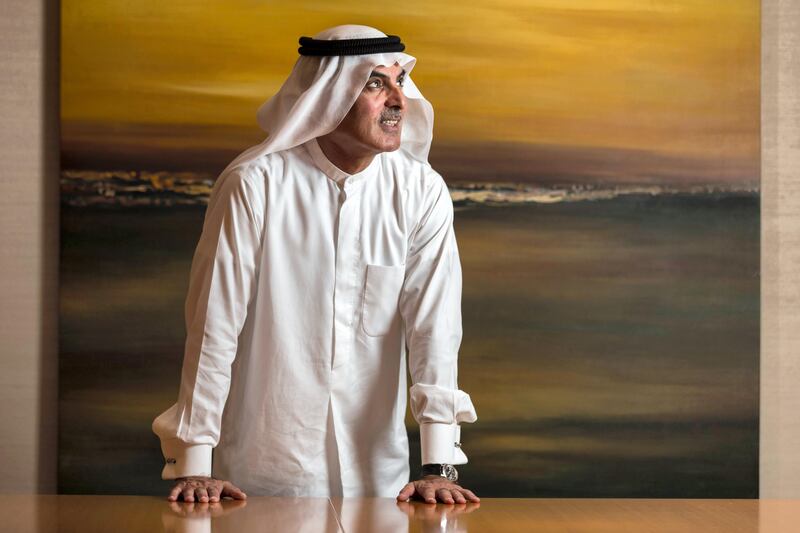Mashreq Bank, the Dubai-based lender controlled by the Al Ghurair family, will shed 10 per cent of its workforce of over 4,000 in the next 12 months as investments in artificial technology are lessening its reliance on human resources, its chief executive said.
"The know-how of artificial intelligence did not exist before, more and more of it is becoming available," Abdul Aziz Al Ghurair said in an interview with The National on Wednesday.
"Once used, it will replace simple, repetitive jobs at the bank. By using artificial intelligence, employment at the banks will shrink over time," he added.
The impact of the savings from leveraging technology will take a couple of years before they reflect on the the bank's profitability, Mr Al Ghurair said. At the same time, the bank is reducing the size of its branches in line with the financial services industry that is increasingly going digital. The shift in the industry has prompted lenders to reassess the need for large branches.
_____________________________
Read more
UAE bank profitability slips slightly in second quarter, Alvarez & Marsal survey shows
Mashreq reports second quarter net profit gains of 3.4 per cent
_____________________________
By way of example, Mr Al Ghurair said one of the bank's main branches on Sheikh Zayed Road in Dubai had seen a 50 per cent reduction in staff as a result of harnessing technology that is automating services.
In an interview with Bloomberg Television this week, former Citigroup chief executive Vikram Pandit said artificial intelligence, robotics and advancements in technology could cause banks to shed 30 per cent of their work force over the coming five years.
While the average cost of a junior employee is Dh250,000, the cost of replacing a staff member with artificial intelligence is a one-time investment of Dh30,000, he added. The kinds of services that can now be done with artificial intelligence include requests for new credit cards, depositing checks and even opening new accounts, he said.
Investments in technology and digitisation are timely for UAE banks as profitability has been on the wane in the wake of the biggest oil price slump since the 2008 financial crash. Banks are fortunate that the UAE has one of the highest smart phone penetration in the world. Mr. Al Ghurair wouldn't say how much Mashreq is spending on artificial intelligence and digital technology. But Emirates NBD, Dubai's biggest bank by assets, said in July it plans to spend Dh1 bln on technology over the next three years to help reduce costs.
Credit growth in the UAE will likely be flat this year as banks remain cautious about lending, following a surge in non-performing loans that came about in the wake of a sharp descent in oil prices, said Mr Al Ghurair, who is also chairman of the nation’s Banks Federation. The slump in crude prices which started in 2014 impacted small and medium size businesses (SMEs).
The level of non-performing loans (NPLs) in the banking system plunged to between 3 and 3.5 per cent this year from highs of more than 25 per cent in 2015, when many SMEs were wiped out by the slowdown in economic growth leaving what was estimated at Dh5 bln of unpaid debts, said Mr Al Ghurair.
Current NPL levels were manageable, he said, but added, that an NPL rate of 1.5 per cent is preferable. To counter the tide of slower loan growth, Mashreq like many banks is boosting its businesses that focus on getting fees such as wealth management rather than loans alone. The bank is also bullish on trade finance, in line with increased trade between the region and emerging markets such as China and India.
UAE banks saw profitability decrease in the second quarter because of lower non-interest income but on the bright side net interest margins are increasing and cost-to-income ratios are improving, Alvarez & Marsal, the global professional services consultancy, said last month.
Mashreq said its second quarter net profit advanced 3.4 per cent, boosted by gains in investment income and a decline in money set aside to cover bad debt.
Its net profit rose to Dh557 million in the three months ended June 30 compared with Dh539m in the corresponding period last year.





